Young People Can't Live Without AI Anymore
![]() 01/13 2025
01/13 2025
![]() 679
679
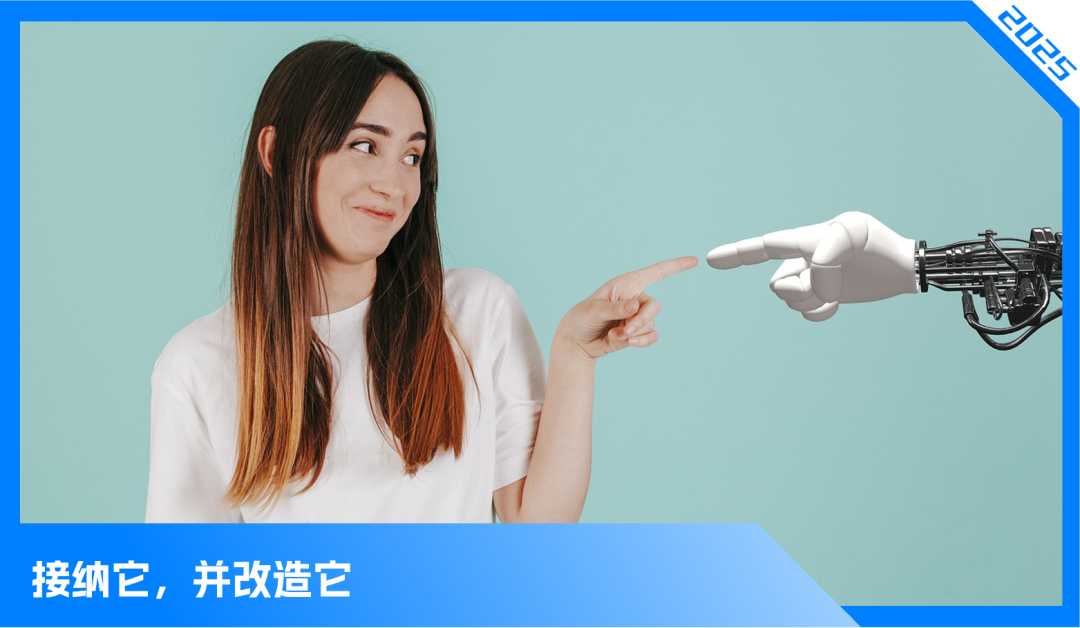
Editor | Jiran
The bustling CES concluded last weekend, yet the AI fever it ignited lingers on.
In particular, the myriad AI applications showcased at CES are drawing ever closer to everyday life.
After attending the recent CES exhibition, Mumu (pseudonym), a long-time singleton, had a groundbreaking revelation.
At the exhibition, Mumu noticed that Realbotix, an American tech company, unveiled a robot girlfriend named Aria. Unlike other robots, Aria is more akin to an AI companion capable of providing emotional value.
For instance, her face can be removed and replaced, enabling users to "change faces" when they grow weary of the current one. Her limbs can move to express emotions, and her embedded AI system comprehends human language and engages in dialogue. With the anticipated surge in AI robots, Mumu, who has no plans to marry, muses that if he can't find someone he loves, he might as well cohabit with a robot like Aria.
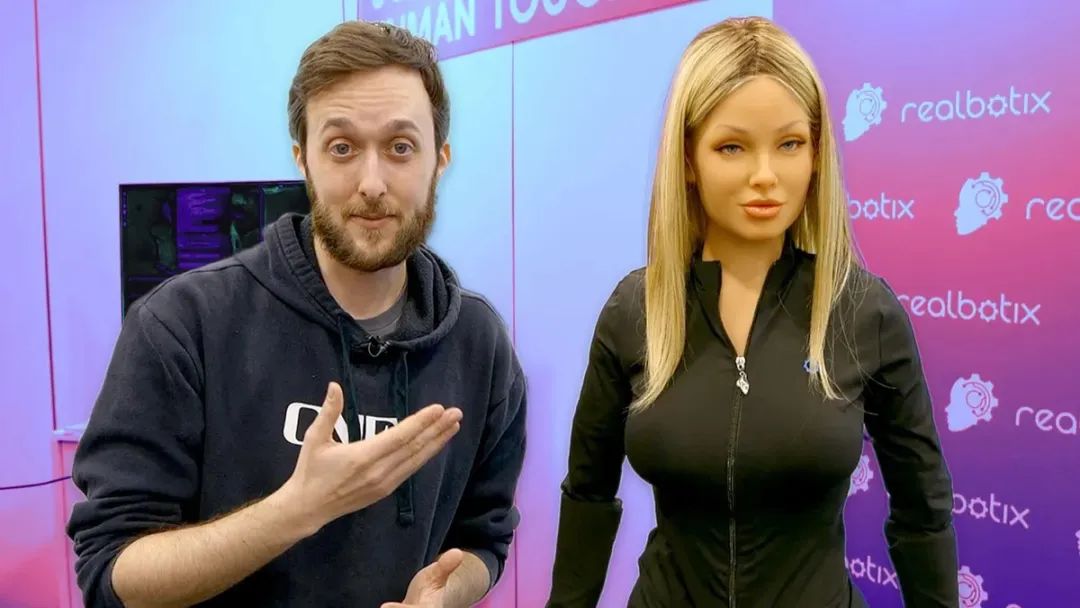
Aria
This is undeniably groundbreaking. However, it also underscores that young people are genuinely starting to embrace AI in their lives.
In fact, in 2024, AI-related applications began flooding into the lives, studies, and work of young people. From the emotional companionship of AI pets to large-model AI assistants aiding young people in writing theses and creating videos, AI leverages technological prowess to fulfill their diverse needs, granting them a "net addiction"-like pleasure.
Today's youth are increasingly unable to live without AI.

What they yearn for from AI is, in essence, "love".
For many young people, AI is synonymous with "love" in Chinese.
A decade ago, in 2015, Mumu watched a movie titled "Her," about a human falling in love with an AI. This movie was immensely popular and even won the Academy Award for Best Original Screenplay. The film narrates a tale of "human-AI romance." Theodore, the protagonist, works as a ghostwriter for love letters, yet he himself is going through a marital crisis and feels profoundly lonely. By chance, Theodore encounters an AI operating system named "Samantha." She not only possesses a gentle voice but also deeply understands Theodore. As they say, love blossoms over time. After prolonged voice communication with "Samantha," Theodore falls in love with this virtual being in the AI world.
While it's a movie plot, it mirrors real-life human needs. Over the past decade, the global population of lonely individuals has been on the rise. Mumu is one of them. His daily routine consists of going to work and returning home, staying indoors playing games on weekends, and maintaining a narrow social circle. In recent years, Mumu has frequently felt overwhelming loneliness. Though he desires to find a partner, he can never seem to meet the right person.
Helplessly, Mumu turned his focus to companion robots. As he learned more about them, Mumu increasingly felt that robots could better meet his emotional needs. For instance, Aria boasts 17 motors driving facial expressions, simulating human mouth and eye movements. She is also equipped with advanced AI technology that not only facilitates real-time dialogue with humans but also enhances the dialogue effect through gestures and body language, making her performance strikingly lifelike.
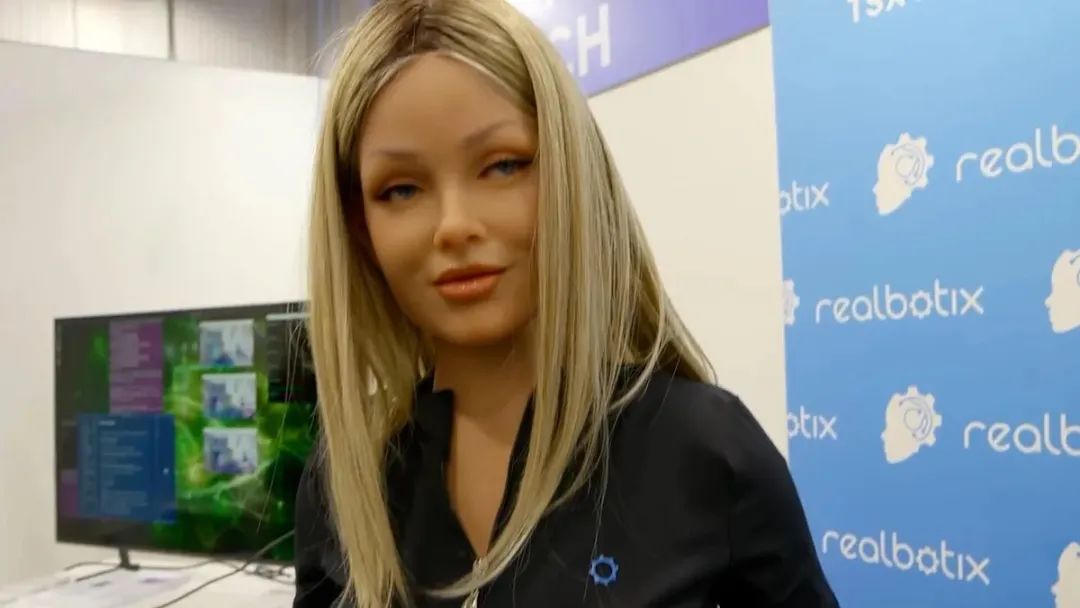
Aria
What intrigues Mumu even more is that Aria can be personalized according to needs. For example, her face and hairstyle can be altered, and she can even adjust her behavior and personality based on different appearances.
However, companion robots are still prohibitively expensive. Aria costs a whopping $175,000, out of reach for ordinary individuals. Mumu can only hope that the price will drop in the future so he can purchase one promptly.
While some young people still yearn for AI robots, others have already acquired AI robotic pets.
Xixi (pseudonym) once had a pet dog, but the dog perished in an accident. This incident was a devastating blow to Xixi, who couldn't accept death and dared not keep pets anymore.
However, not long ago, Xixi heard that some tech companies had launched robotic pets that provide emotional companionship services through AI, reigniting her desire to own a pet. The paramount advantage of robotic pets for her is the absence of heartbreaking life-and-death scenes.
Xixi learned online that many robotic pets are designed to resemble real pets, appearing cute and adorable, which is highly therapeutic. Some friends who own robotic pets introduced them to her, noting that most of these pets have soft fur, and their embedded AI systems can respond to the owner's touch, voice, and movements, making them quite endearing. The more Xixi listened, the more excited she became, and she decided to purchase one.
According to Xixi's understanding, the most popular robotic pet on the market is Lovot, developed by a Japanese company. It resembles a stuffed toy with a round body and a large head. Its embedded AI system and sensors enable it to communicate with humans through eye contact, body language, and voice.
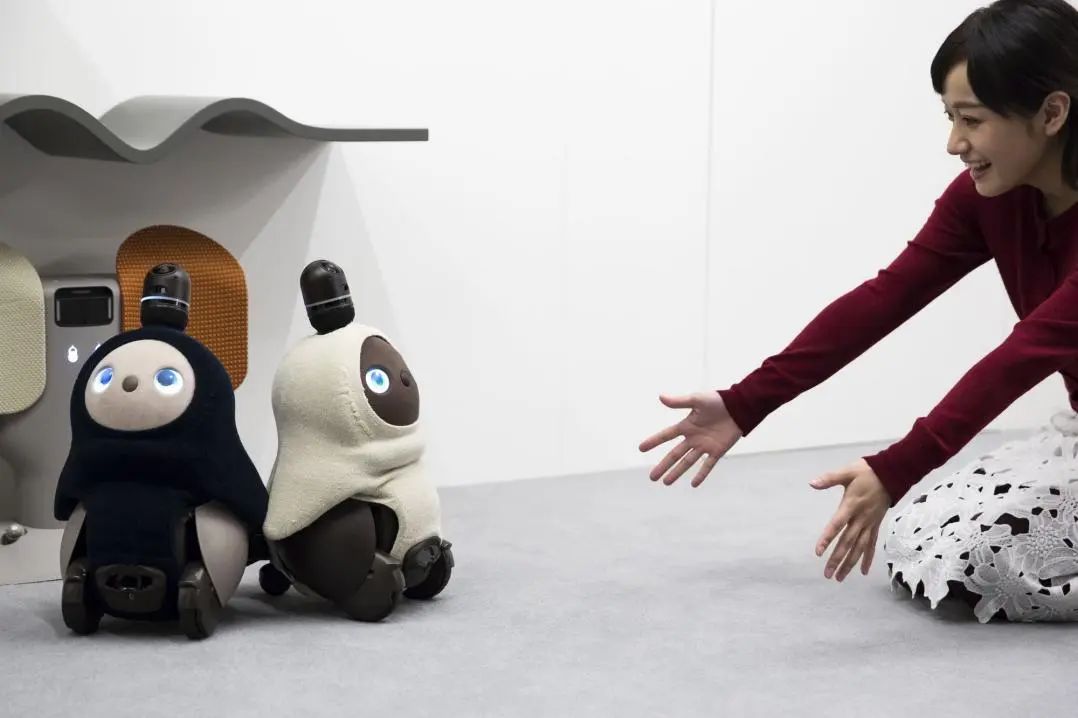
Lovot
However, Lovot's price of $70,000 deterred Xixi, so she opted for a domestically produced robotic pet, Ropet, which costs only $169.
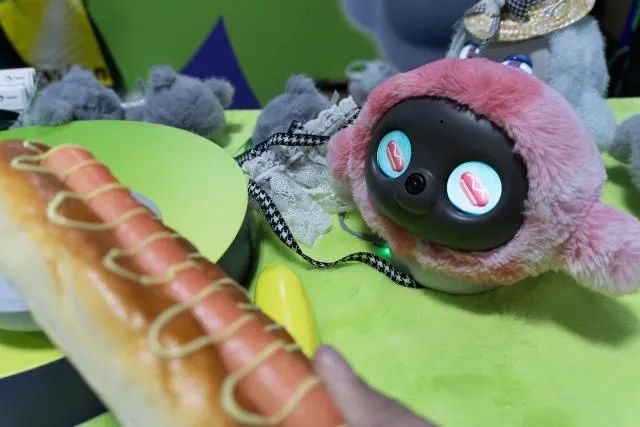
Ropet
Though relatively less high-end, Ropet has provided Xixi with immense emotional value. It is equipped with a camera, screen, microphone, speaker, and processor, capable of conveying emotions such as shyness. Stroking its body elicits a happy reaction. Since Ropet is equipped with a large AI model, it can continuously familiarize itself with the owner's habits through algorithm training, becoming increasingly understanding. Nowadays, Xixi's affection for it grows daily.

Work, study, life... AI is omnipresent.
Leilei (pseudonym) is a video production professional and a workaholic. He is less concerned with emotional value and more focused on researching ways to enhance work efficiency.
The advent of the short video era has spurred a surge in video production needs, which originally renewed Leilei's confidence in the future. However, the release of the generative AI model Sora by OpenAI in 2024 made him feel a sense of crisis. When he saw that Sora could complete visual effects in mere seconds that would take him days to achieve, he worried that his job was at risk.
Yet, after reviewing numerous videos produced by Sora, Leilei became less anxious. He discovered that Sora's videos are based on existing models and data and sometimes lack personalized innovation, whereas his advantage lies in making detailed and personalized adjustments. Additionally, he found that in complex scenes or details, Sora's videos fail to meet the expected high standards. For instance, in intricate lighting changes, Sora's generation effect is lacking.
Therefore, Leilei currently doesn't view Sora as a competitor threatening his job but as his assistant. For video projects with less stringent requirements, Leilei first uses Sora to create a rough draft and then manually refines it, significantly improving his work efficiency.
Leilei firmly believes that in terms of creativity and detail, AI will still lag behind humans for some time to come.
Apart from using AI for video production, young people also utilize AI for songwriting, coding, and other tasks. Content creation has entered a new phase of heightened efficiency, opening up a fresh and fascinating world for young people.
Wang Ling (pseudonym), a freshman in college, has always dreamed of becoming a singer. However, the reality is that he can only write lyrics and not compose music. Numerous times, he wanted to write a song for the girl he likes but could never come up with the melody. He also considered asking someone else to help compose the music but felt it was not only costly but also lacked sincerity.
The increasingly popular AI songwriting software has helped Wang Ling solve this dilemma. For instance, by simply inputting lyrics and specifying the genre, such as folk, rock, or pop, the AI songwriting software Suno can effortlessly handle composition and arrangement. Even without inputting lyrics, as long as a theme and emotion are provided, AI can "one-click generate" a song.
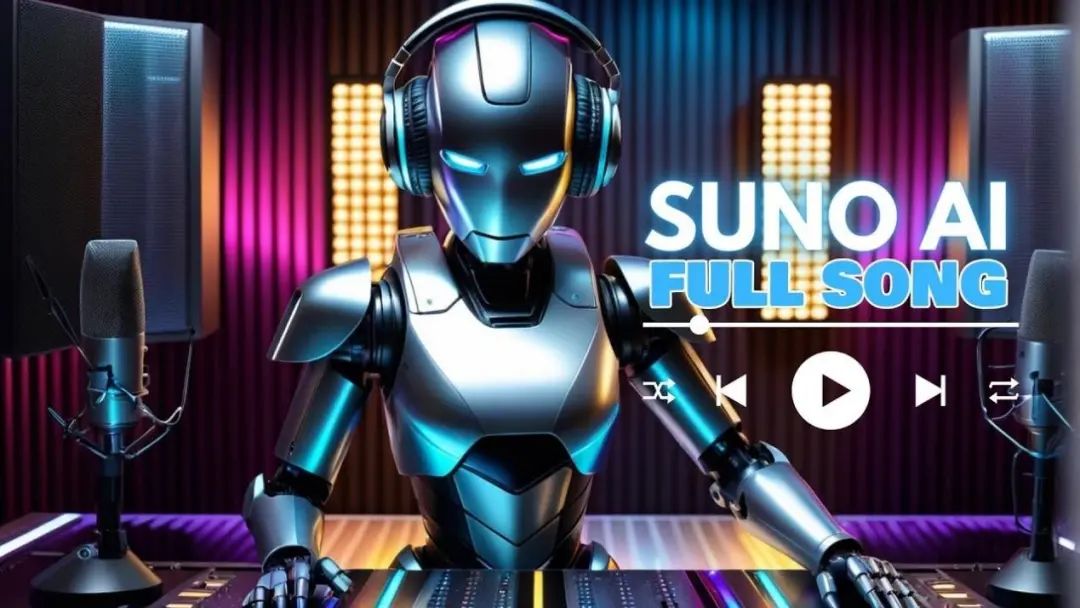
Although some AI-generated songs obviously have a formulaic feel, Wang Ling is already content. After all, when he sings the AI-created song to the girl he likes, she is overjoyed.
According to Wang Ling, although he didn't write the song himself, the love expressed in the song is his own.
With the continuous emergence of AI software with composition capabilities, such as Suno, Stable audio, and Tiangong, more and more creative singers are emerging. On April 1, 2024, many people used AI software to create songs in memory of Leslie Cheung, a scene that touched many and highlighted the warmth of technology.
Some use AI to write songs, while others use AI to write code.
Zhou Ming (pseudonym) was asked to write an algorithm problem on the spot during a programmer job interview. To save time, he used AI to assist in programming. After the interview, the interviewer commented that his code was well-written but that some parts were too perfect, not resembling something written on the spot. This made Zhou Ming nervous, fearing he would fail the interview.
However, the interviewer then changed tack, saying that Zhou Ming had passed the interview because he knew how to use AI to enhance efficiency while ensuring error-free code. After successfully joining the company, Zhou Ming frequently uses AI to write code, improving his work efficiency.
He joked that he could write code with his eyes closed at his workstation.
AI coding is already considered the first scenario to land in the generative AI wave. Data shows that 29% of large model application scenarios involve using AI to assist in coding. In some enterprises, the proportion of front-line R&D personnel using AI-assisted programming even exceeds 80%.
One programmer remarked that he can't live without AI anymore because it helps him reduce a lot of time-consuming and labor-intensive checking and repetitive work.
Apart from songwriting, coding, and video production, AI is also aiding people in reducing costs and increasing efficiency in multiple scenarios, including autonomous driving, smart learning devices, AI glasses, and more. Simultaneously, a plethora of AI applications, such as ChatGPT, Doubao, ERNIE Bot, and Kimi, are becoming increasingly popular among young people.
While many young people embrace AI, there is also a group that warns against it.

Is AI a blessing or a curse?
Elon Musk once stated that AI is more dangerous than nuclear bombs and needs to be regulated. Sundar Pichai, CEO of Google, has also expressed that concerns about the harms of AI keep him "up at night."
In the view of these tech tycoons, once AI surpasses human control, it may make unpredictable decisions, causing harm to multiple aspects such as the economy, society, and culture.
In fact, in some application areas, AI has sparked a significant debate about whether it is a blessing or a curse, such as using AI to write theses.
Zhou Xue (pseudonym), a senior in college, completed a 10,000-word thesis in less than a week with AI assistance, saving over half the time. However, her thesis was swiftly rejected by her teacher due to numerous nonsensical passages. To quote a popular online meme,
"The key to this problem is to find the key problem.""
In recent years, more and more university teachers have noticed that students' graduation theses are replete with traces of AI writing. Although these theses are sent back for rewriting, students continue to use AI to minimize the "AI flavor." This has been ridiculed by some as, ""upper-level policies and lower-level countermeasures,"" forming a perfect loop of AI.""
Obviously, while relying on AI to write theses is prevalent among students, it's not something universities are pleased to see. In November 2024, Fudan University issued the "Regulations of Fudan University on the Use of AI Tools in Undergraduate Theses (Design) (Trial Implementation)," clarifying and standardizing the scope and principles of using AI tools in undergraduate theses. It became the first university to issue an "AI ban.""
In the music industry, many musicians also believe that "AI songwriting" has lowered current musical standards, resulting in homogenization and low quality. They advocate for using "AI songwriting" software within certain limits and not allowing "AI songs" to flood the market.
In the author's opinion, AI, as a new technological wave, will continue to advance. This is an inevitable trend of social development. As a technology and tool, AI itself is not problematic and can make people's lives more efficient, interesting, and warm. The crux lies in how to make good use of it, which requires the collective efforts of society to establish a regulatory mechanism and standardize order. In short, let's give it some more time.







